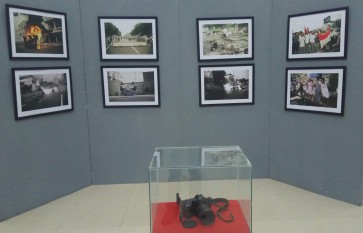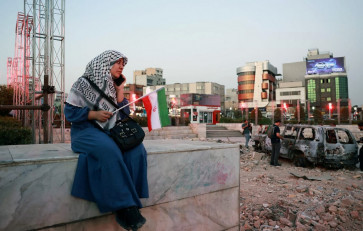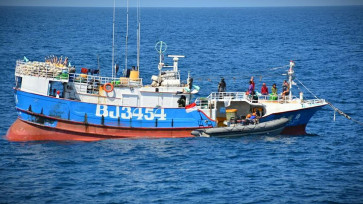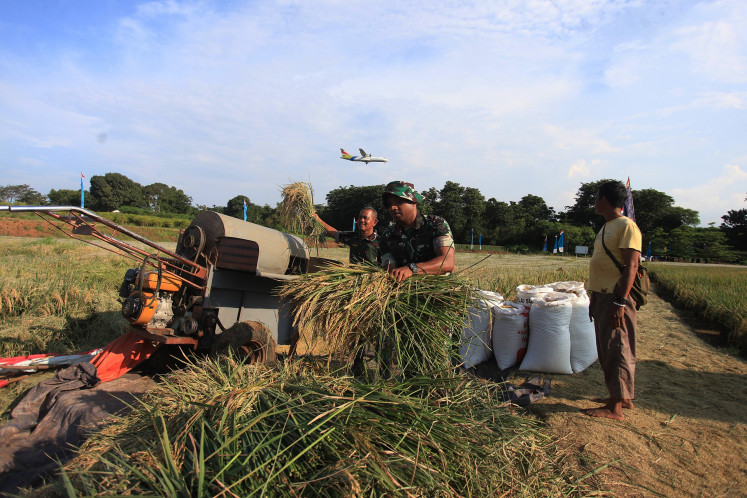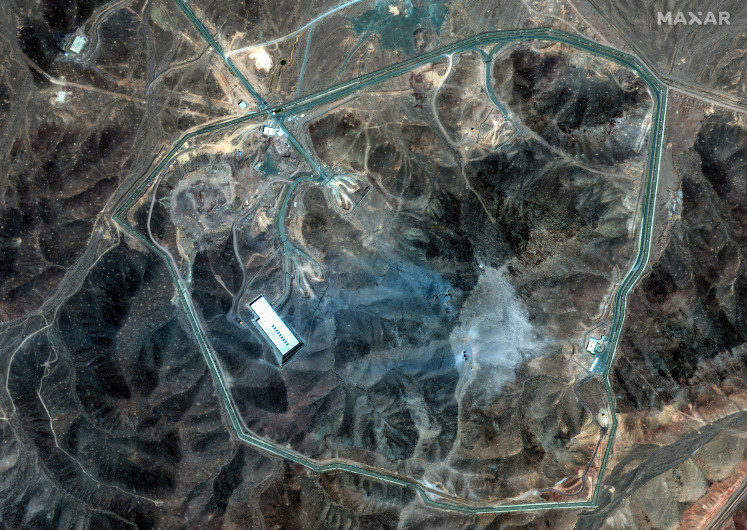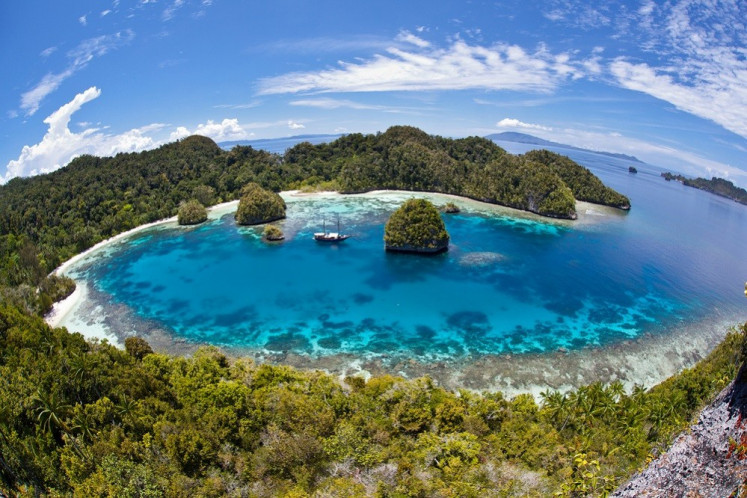Popular Reads
Top Results
Can't find what you're looking for?
View all search resultsPopular Reads
Top Results
Can't find what you're looking for?
View all search results20 years later, RI recalls Bali bombing tragedy
Memorial gatherings also held in Sydney, Canberra.
Change text size
Gift Premium Articles
to Anyone
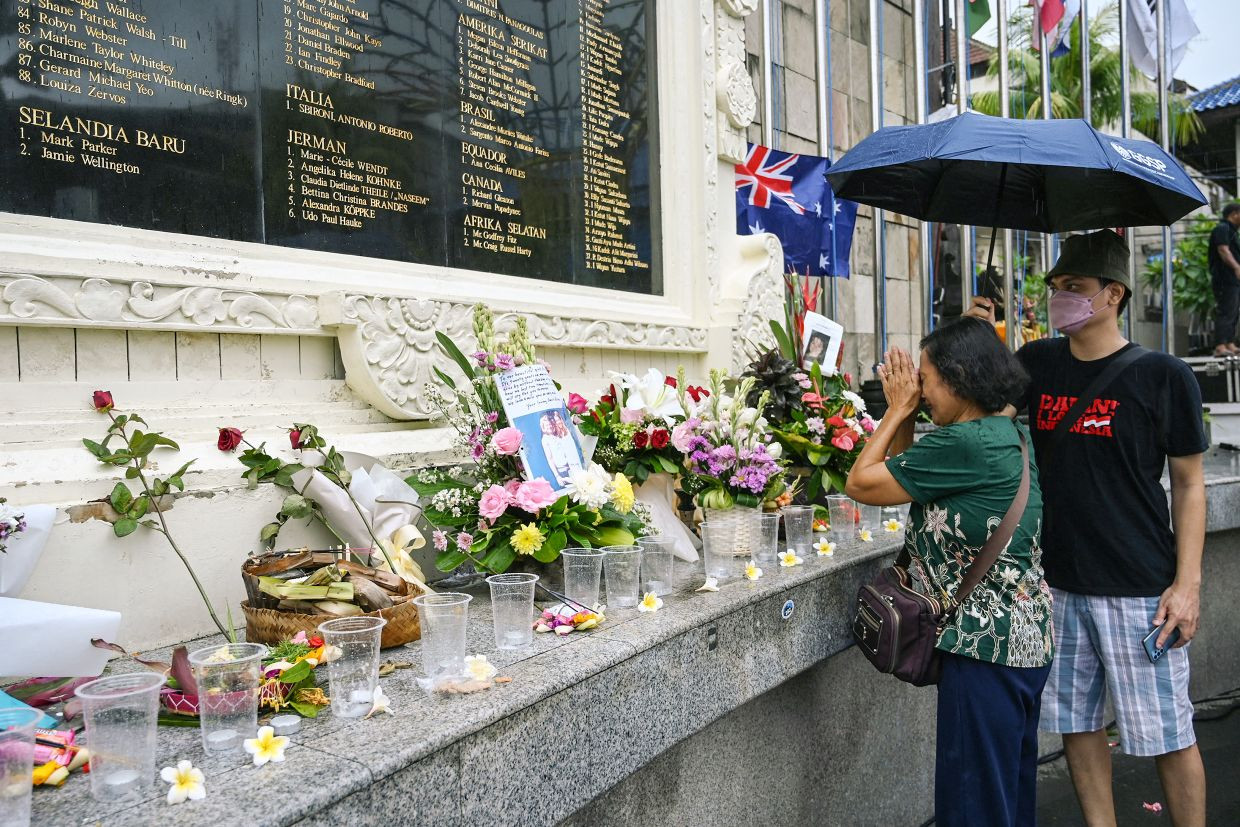
S
urvivors of the 2002 Bali bombings and victims’ loved ones gathered on the holiday island and elsewhere on Wednesday to mark two decades since the terrorist attack that killed more than 200 people and changed the country’s national security landscape.
A candlelight vigil was held at the Bali bombing memorial on Jl. Legian in the tourist area of Kuta, just meters away from the site of the blasts. The monument was built by friends and family members to remember those who perished after al-Qaeda-linked extremists detonated bombs at a bar and nightclub on Oct. 12, 2002.
Isana Dewata, a foundation for survivors and those who lost loved ones in the tragedy, held a mass peace prayer at the monument, where wreaths and religious offerings had started to pile up.
“It’s okay that some people have forgotten what happened 20 years ago, but there are still real victims. There were children who lost their parents in the bombing,” said Thiolina Marpaung, one of the vigil’s organizers, as quoted by AFP.
In Nusa Dua, the National Police’s Densus 88 antiterrorism squad held a full-day event to commemorate the attacks. They hosted a number of activities, including an exhibition and a reunion of survivors, investigators and authorities who responded to the tragedy 20 years ago.
Insp. Gen. Boy Rafli Amar, the head of the National Counterterrorism Agency (BNPT), which was set up in response to the attack, paid tribute to the victims and the survivors.
“Today is a day I remember with deep regret and sadness,” he said in his remarks.
Uncivilized acts of violence
Organizers put together a video statement by President Joko “Jokowi” Widodo, where he called terrorist attacks “uncivilized acts of violence” and “savage acts” that sought to destroy the unity of the country.
“I reaffirm that there is no place in our nation for terrorism,” the President said in the video.
Jokowi has had to respond to a series of terrorist attacks during his presidency, starting with the 2016 Jakarta attacks. Since then, at least six other incidents have occurred across the country.
But the 2002 Bali bombings are still considered the deadliest terrorist attack in Southeast Asia. In the incident, two suicide bombers set off a car bomb and an explosive vest at a crowded nightlife district in Kuta, in apparent retaliation against the Western war in Afghanistan. Some 202 people died.
Local militant group Jemaah Islamiyah (JI), linked to Al-Qaeda, was blamed for the bombings. The perpetrators have either been executed, killed by law enforcement or imprisoned.
The tragedy sparked a large-scale counterterrorism effort in Indonesia and galvanized the country’s moderate Islam movement, which has sought to decouple religion from violent extremism.
But the government recently drew the ire of the victims’ relatives, after reports emerged that it was considering an early release for Bali bomb maker Umar Patek, who has served only half of a 20-year prison sentence.
Most victims of the Bali bombings were holidaymakers from 21 countries, including Germany, Japan, Brazil and South Africa, but 38 Indonesians also perished. Australia suffered the biggest loss, with 88 dead.
In Denpasar, the Australian Consulate General held a memorial service attended by survivors and victims’ relatives and presided over by Australian Ambassador to Indonesia Penny Williams.
In one testimony, Australian national Andrew Csabi suggested that Bali remained unchanged. It was still the same beautiful place for holidaymakers with many spots and activities to enjoy.
Csabi had just returned from three days of diving through the island’s east, he told fellow mourners at the service.
“Bali is paradise, and Bali also loves Australia. The people of Bali also welcome us unconditionally every time I arrive here,” the bombing survivor said, awash with emotion.
“I was granted a second chance for life, and I’ve made every minute of it count.”
The service ended with a moment of silence, and flowers and wreaths were laid in the Bali mission’s memorial garden.
Permanent mark
In Sydney, Australian Prime Minister Anthony Albanese told a memorial service that the horror of the bombings was swiftly countered by incredible acts of self-sacrifice and bravery.
“They sought to create terror, but people ran toward the terror to do what they could for friends and strangers alike," he told a crowd gathered under light rain at the city's famous Coogee Beach, as quoted by AFP.
At the memorial, 88 doves were released – one for each Australian killed.
Albanese said the Bali bombings had left a permanent mark on Australia’s national identity.
In Canberra, a memorial was held at Parliament House, where Australian Foreign Minister Penny Wong and a number of guests, including former Australian prime minister John Howard and Indonesian Ambassador Siswo Pramono, gathered to pay their respects.
“We recommit to the ongoing work shared by Australia and Indonesia to counter the scourge of violent extremism, and reaffirm the respect and cooperation between our peoples,” Wong and Albanese said in a joint media statement.

